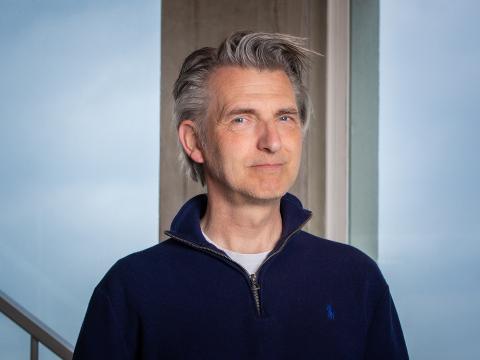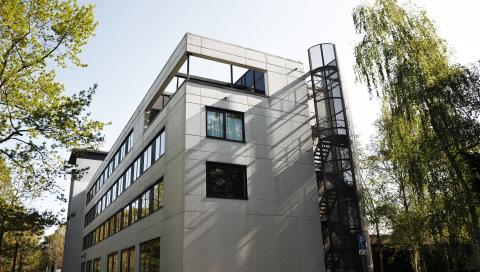‘AI is our core business; our university links people with technology’
ChatGPT has arrived, an application with a huge impact. Eric Postma, Professor of Artificial Intelligence (AI): “For Tilburg University, a product like this come as no surprise. In the Cognitive Science and Artificial Intelligence department alone, more than 80 researchers are developing knowledge of the computer science, neuroscience, linguistics, and philosophy behind Large Language Models (LLM) like ChatGPT.” He goes on to give a concise description of AI research.
“ChatGPT is a PR stunt,” declares Postma. “It was put into the world to make this specific form of AI better known to a wider public, and to make it more widely applicable. But the underlying technology is not all that new. The technical and language models (LLMs) underpinning ChatGPT have been researched and employed for researchers for many years, including here at Tilburg University.”

Working from our own expertise
Tilburg University research is differentiated by its focus on how data science and artificial intelligence can link human cognition with technology, according to Postma. “Other universities have approached AI principally from a technical perspective, for instance, or from the neurosciences. But as researchers we don’t compete with each other or with other universities; we all work from our own strength and expertise. Tilburg University has long been known as a specialist in the field of humanities and social science, and that’s the specialism we employ in relation to artificial intelligence.”
Leading research from different perspectives

“Those working and studying in our department are a very international group of quite young people,” Postma goes on. “They come here from far and wide to work with AI, because Tilburg is famously vibrant, and has been for years. For instance, our colleague Grzegorz Chrupala is doing research into how children and computers learn a language in multimodal settings, also making use of ChatGPT-like language models.
Dimitar Shterionov is also focusing on language, but especially in the context of inclusive machine translations. Murat Kirtay and Giacomo Spigler are studying AI for robotics. And if you ask a search engine a question about a sensitive politic topic, do you get a left-leaning or right-leaning answer? My colleague Henry Brighton is doing research into those kinds of biases in search engines. And the multimodal aspect of AI, image recognition and image data, are important research themes for my colleagues Sharon Ong and Görkem Saygili. The research team is getting larger all the time, because the theme is very urgent and also very dynamic.”
Public-private partnerships with authorities and businesses
Besides fundamental scientific research Tilburg University also does practical and applicable research. Postma: “We have public-private partnerships with companies, care organizations, authorities, and others. These partnerships are extremely valuable, because they allow scientists – and entrepreneurs, for instance – to look at things in new ways, which generates new ideas and insights that may well contribute towards more fundamental follow-up research."
Tilburg University research has already found application in areas like health care, education, cybersecurity, aviation, biodiversity, and the creative industry
Professor Artificial Intelligence Eric Postma
In April 2023 Eric Postma gave a workshop on AI to the Dutch House of Representatives. “To explain exactly what ChatGPT is, and how it basically works, in intuitive rather than technical terms. One MP said: it’s almost like magic. I can understand that reaction because the technology has aspects that we don’t yet fully understand. But it’s not magic, and that sober message is one I’m keen to convey. Sharing knowledge dissipates the mystique, and politicians need to adopt a critical attitude towards these kinds of innovations.”
Riding the wave
For every discipline, dealing with ChatGPT and other forms of AI is a challenge. In Eric Postma’s view, individuals, companies, scientists, and society need to focus on successfully riding this wave of technological developments. “If you know that a tsunami is coming, you’re at an advantage. I think you’re better off getting into the sea and riding the swell than standing on the beach and being engulfed by the water. In those terms Tilburg University is comfortably offshore: ChatGPT is not something that’s just going to ‘happen to us’. AI is our core business, and we find it enormously interesting – not just because of the science, but precisely because we see opportunities for all kinds of wider applications in society, like optimizing the energy market, or supporting medical care and lightening its burden.”
Date of publication: 12 June 2023
